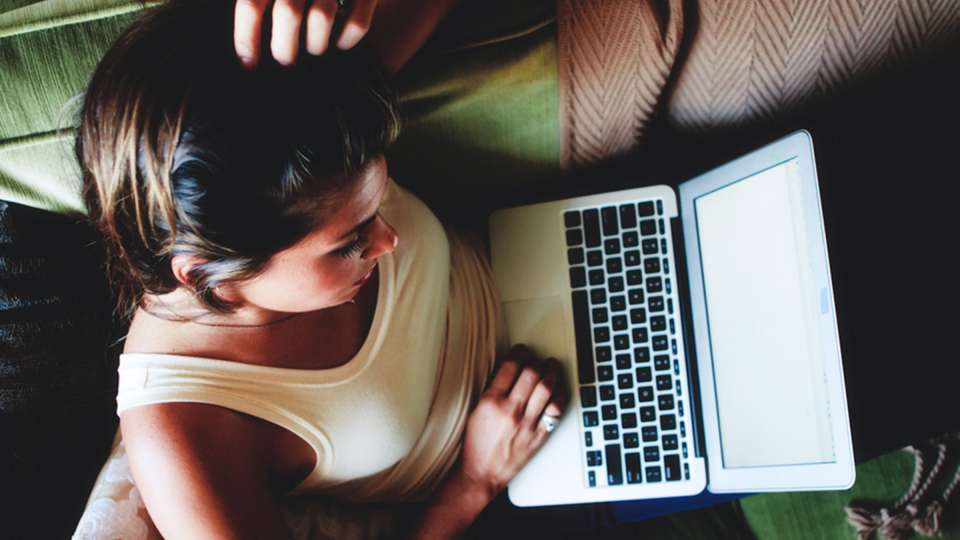
Maybe it started out innocently enough: You were working extra hours to meet a deadline, or you wanted to help a friend with their side project.
But then the pandemic hit.
Suddenly it’s all-too easy to be glued to your laptop late into the evening or to send just one more email from bed. Plus, school closures mean homeschooling the kiddos, and you heard that Shakespeare wrote "King Lear" during a lockdown caused by the plague, so shouldn’t you be completing a creative project, too?
Hustle culture, an often-glamorized concept of constantly working and being busy, causes many people to take on more work than they can reasonably manage.
During the pandemic, it can feel easier than ever for work to seep into your personal time — but being on 24/7 can hurt your health.
When too much is never enough
When you’re wrapped up in hustle culture, it doesn’t matter how many hours you log or what accomplishments you make: there is always another project to complete, deadline to meet or person to impress.
“A lot of people say things to themselves like, ‘My coworker sent an email at 3 am, and if they’re working, maybe I should be working,’” says Dr. Jeanne Hoffman, a psychologist in the Department of Rehabilitation Medicine at UW Medicine. “It’s cultural for Americans. It’s well known that people work way more hours and have less time off than other countries.”
Ironically, working overtime can stifle creativity, and one study found working more than 50 hours per week actually decreases productivity.
“People who work all the time actually end up being less productive and sick more often because of the constant work,” Hoffman says.
Put simply, hustle culture leads to burnout.
Signs you are burning out
So, you’re working overtime and starting to feel overwhelmed. How do you know if you’ve tipped into burnout?
Common signs of burnout include disengaging from work, emotionally distancing yourself from others and being more reactive than usual.
These signs can pop up in different ways. Maybe you’ve been working on a big project for months, but instead of feeling a sense of accomplishment when you finally finish, you just feel the push to work on the next task. Or maybe you’ve found that you’re more irritable and that you snap at coworkers over trivial things.
Another big giveaway is feeling emotionally and physically exhausted.
“One thing we look for is when people feel like they don’t have the resources they need to meet the demands of their jobs or their lives,” says Dr. Anne Browning, founding director of the UW Resilience Lab and assistant dean for well-being at the University of Washington School of Medicine.
Browning notes that when you’re burned out, large stressors — like all that pressure at work — can make the small tasks and errands feel downright unmanageable.
So, if your day is dictated by your to-do list but you’re struggling to get through the dishes (or even make a meal), it might be a sign that you’re burned out.
How the hustle hurts your health
Despite calls to rise and grind, there are plenty of reasons to prioritize a work-life balance, perhaps the most important being your health.
Working overtime and experiencing burnout are associated with a whole cornucopia of health risks, like high blood pressure, excessive alcohol use, atrial fibrillation or irregular heartbeat, cardiovascular disease and depression — just to name a few.
“Especially during COVID-19, a lot of people feel like they need to be on all the time, but it’s important to take a break,” Hoffman says.
While long-term health impacts may feel far away (and that deadline can feel oh-so close), the reality is that taking breaks will help you feel refreshed and better able to handle both work and your personal life.
Tips for burnout recovery
Pushing back against an all-consuming work culture is tough, but caring for yourself is important.
Here’s how to cope with burnout and strike that elusive work-life balance.
Build resilience
According to Browning, there are three keys to resilience: connection, gratitude and purpose.
If you are feeling disillusioned with your work, try to focus on reconnecting with your coworkers and the reason you took your job in the first place. Reminding yourself of the meaning behind your work can be energizing, and investing in the people you work with can help build a sense of community that will see you through days when you’re feeling stressed out.
Finding small ways to practice gratitude can also help.
“From a neurosciences prospective, you can shift the way your brain responds by getting out of a cycle of rumination on negative thoughts and feelings,” Browning says.
Whether you think about what you’re grateful for during the 20 seconds you’re washing your hands or journal about it before going to bed, practicing gratitude can shift your perspective and help you focus on the positives.
Carve out break time
You have a lot of demands on your time, so being intentional about how you spend it is important.
Hoffman recommends taking a moment at night to write down everything you did during day, which will show you where your time is going and if you are allowing yourself any breaks to exercise, relax or get fresh air.
If you find your personal time is a little lacking, try picking a self-care activity that you enjoy and scheduling it into your week.
Planning personal time in advance can make it easier to maintain the boundary between work time and free time. This way, you’ll be less tempted to work late because you will have already blocked off the time for yourself.
Practice compassion
Right now, there is a lot to juggle. You may be trying to come up with summer activities for your kids to do at home while also enduring a never-ending marathon of Zoom calls. Add in work pressure and you’ve got a perfect stress storm.
While it can be easy to get down on yourself work, try giving yourself some grace and compassion.
“It’s about being kind to yourself and recognizing just how hard this moment is,” says Browning.
Ultimately, if we focus less on the hustle and more on humanity, we might just be a little healthier, happier and better off at work, too.

 Healthy ideas for your inbox
Healthy ideas for your inbox





